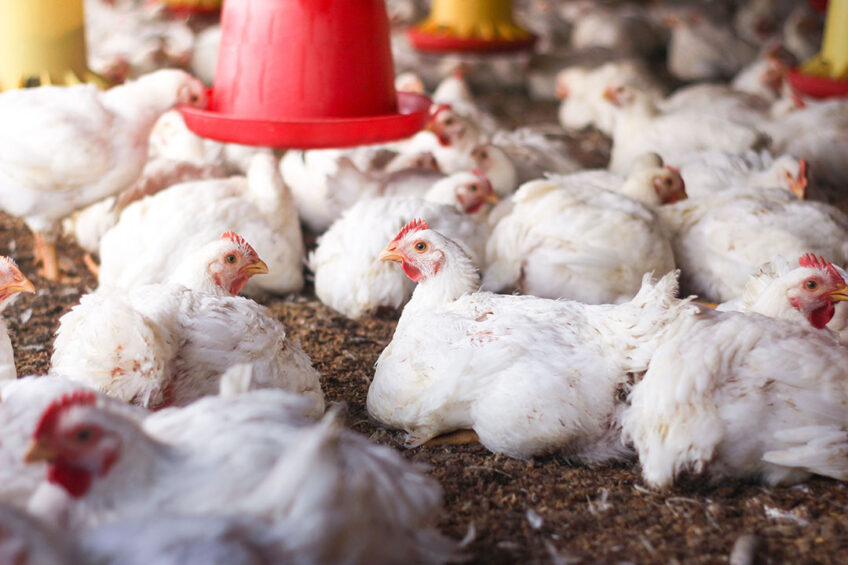New bacteriophage product for feed to tackle salmonella in broilers

Global feed company AB Agri has joined forces with researchers at the University of Leicester to develop a new bacteriophage product to prevent Salmonella in broilers.
Nontypical Salmonella spp are a leading cause of human gastrointestinal infections and are commonly transmitted via the consumption of contaminated meat. In the EU, around 91,000 people are infected with Salmonellosis annually, a severe form of food poisoning.
To limit the spread of Salmonella and other food-borne pathogens in the food chain, bacteriophage therapy can be used during rearing or pre-harvest stages of animal production. This study was conducted to determine if a phage cocktail delivered in feed is capable of reducing Salmonella colonization in experimentally challenged chickens and to work out the optimal phage dose.
It’s hugely exciting to have developed a product which could help reduce infection in chickens and prevent Salmonella ultimately entering our food chain
The study format
A total of 672 broilers were divided into 6 treatment control groups to test whether the bacteriophage was effective in differing doses. The liquid phage cocktail was added to mash diet with ad libitum access available throughout the study.
By the concluding day of the study (Day 42), no Salmonella was detected in faecal sampled collected in one of the trials. Phage treatment at all 3 doses had a positive impact on growth performance in challenged birds with increased weight gains in comparison to challenged birds with no phage diet.
Positive results
Researcher Dr Anisha Thanki, of the Leicester Centre for Bacteriophage Research, said: “We tested whether the bacteriophage product delivered in feed at different doses wiped out Salmonella in chickens over a 42-day period. We found that all those infected and treated with the lowest dose at the beginning of the trial, tested negative for Salmonella on day 42.
“It’s hugely exciting to have developed a product which could help reduce infection in chickens and prevent Salmonella ultimately entering our food chain. If successfully commercialised it could reduce reliance on existing antimicrobials and potentially save the farming industry billions of pounds each year.”
Dr Natasha Whenham, head of innovation at AB Agri, said: “We are passionate about finding innovative technologies that enable responsible food production globally. AB Agri is proud to support ground-breaking research into novel solutions that help drive our industry towards a more sustainable future.”
The published findings of the study can be found in Emerging Microbes and Infections











